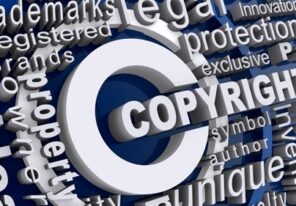Home > Run and Grow >
Run and Grow
8 Ways to Improve Customer Satisfaction
Want to improve customer satisfaction? Be sure you know the best ways to make it happen! Here are eight proven ways to improve customer satisfaction by finding out what they value, what they care about, and what they really want.
3 Steps for Evaluating Your Service
Your ability to build customer service success must begin with an honest self exam of how you are doing right now. These three steps will give you a snapshot of where you are and where you need to improve in the months and years to come!
How to Write Your First Help Wanted Ad
When you’re looking to hire new employees, you want to write ads for the open positions that will draw great candidates to your business. You want candidates who are both strong and fitting for what you’re looking for. An effective help wanted ad will help you successfully achieve these goals.
Intellectual Property Awareness
What happens if you’re trying to do business on a national or global level? One thing is certain. You’re going to have intellectual property issues to deal with. And you may not even realize that these issues exist. Here are a few things to think about in determining whether you need outside help.
Product Liability
No matter what stage you occupy on the business chain, there are a few things you can do to protect yourself from product liability claims. Manufacturers and retailers confronting this issue have had to increase the costs of their goods and services in order to pay the price for not only litigation but also regulatory requirements imposed by state and federal governments.
What is the Cost of Employee Turnover?
Employee turnover is more costly than you think. Every businessman knows at some level that it’s easier for them if they can manage to keep their current employees than to need to find replacements. However, the cost of staff turnover is surprisingly high, and many small business owners don’t fully realize just how expensive it is to replace an employee.
Always Keep Your Promises
To develop a strong brand, you have to get customers to know your value proposition. They should know what makes you different from your competitors. But it’s not enough for them to just know what you say makes you different; they should know from seeing you fulfill your promises.
Why We Miss Our Goals
Tell me if this scenario sounds familiar. You know exactly what you want to do. You have it all figured out. And then somewhere along the line, something happens. You’re not even sure what it was—all you know is the end result: whatever it was you were planning, it didn’t get done.
What Does General Liability Insurance Cover for Your Small Business?
Of all the kinds of insurance you can get for your business, general liability is one of the most important. This guide will help you identify what these policies will cover, as well as how much coverage would be appropriate for you.













